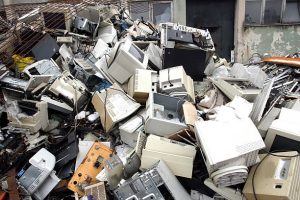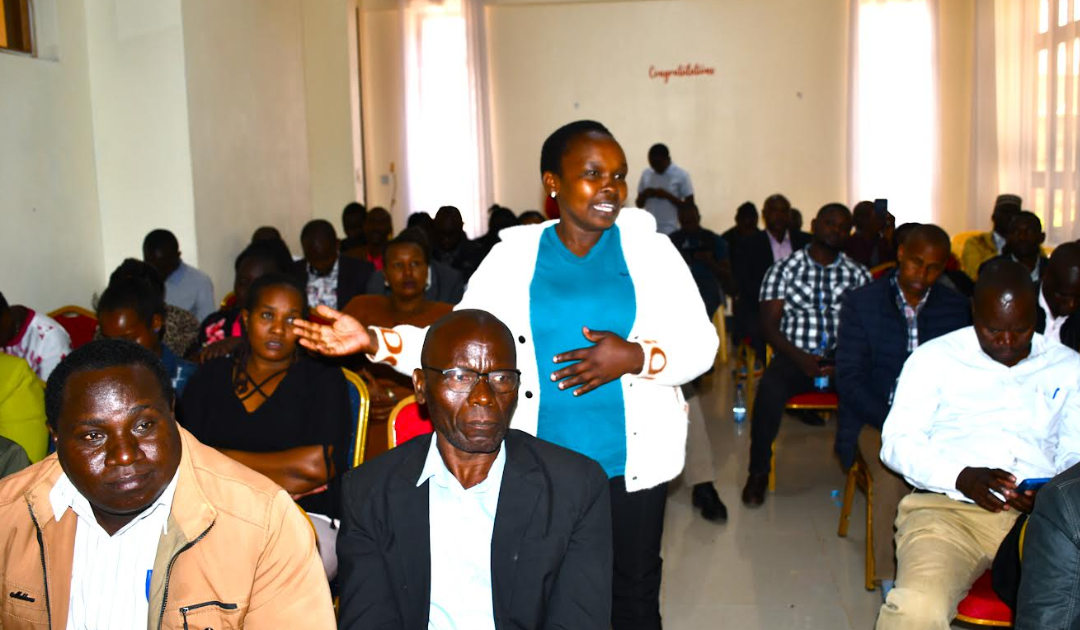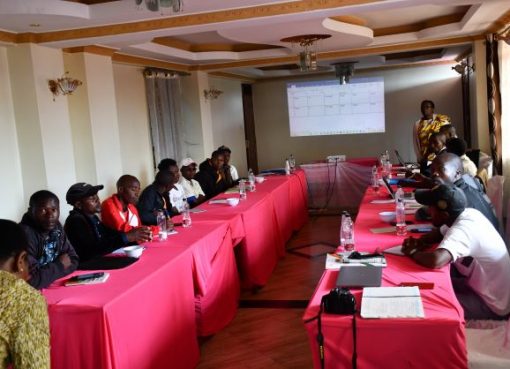The ICT Authority, through its Directorate of Partnership, Innovation, and Capacity Building, held an intensive training session for Civil Servants in Kericho, Friday, February 7, about e-waste management.
This initiative, which has been conducted in various counties, aims to create awareness, build capacity, and promote sustainable electronic waste recycling.
Speaking at the event, Kepha Githinji, an e-waste expert from the ICT Authority, emphasized the urgency of tackling electronic waste.
“With the rapid rise in technology, e-waste is becoming a major environmental concern. Our goal is to ensure that both individuals and institutions understand how to dispose of and recycle electronics responsibly,” Gitinji said.
The training, conducted at the ACK Holy Trinity Hall, covered key aspects of e-waste handling, including safe collection, sorting, testing, dismantling, repair, refurbishment, and disposal. Participants, including government officials and business owners, were taken through practical sessions on how to minimise environmental harm caused by improper disposal of electronics.

Diana Gicheru, the Business Development Manager at Waste Electrical and Electronic Equipment Centre (WEEE), highlighted the economic benefits of e-waste recycling.
“Beyond protecting the environment, e-waste recycling creates job opportunities and provides a sustainable source of raw materials. By refurbishing and reusing electronics, we reduce waste while promoting economic growth,” Gicheru explained.
The ICT Authority has partnered with key organisations such as NEMA, PPRA, GIZ, JKUAT Industrial Park, and the World Bank to support these efforts.
According to Richard Masore, ICT Authority’s E-Waste Project Lead, these collaborations are crucial in implementing effective policies.
“We are working closely with regulatory bodies to enforce proper e-waste disposal and create incentives for businesses to adopt sustainable practices,” Masore stated.
The team from the ICT Authority’s Kericho office ensured smooth coordination of the event. The training is part of a broader initiative to roll out Kenya’s national e-waste standard, which focuses on five key areas, including collection and transportation, treatment and recycling, disposal, health and safety, and producer responsibility.
Among the issues the participants discussed are the negative effects of unchecked e-waste, including soil and water contamination, human health risks, and loss of valuable resources. The proposed solutions include stricter enforcement of regulations, public education campaigns, and incentivising recycling businesses.
With more counties set to benefit from similar training programmes, the ICT Authority remains committed to building a sustainable e-waste management system in Kenya.
“This is not just an environmental issue but also an economic and health issue. We must all take responsibility for the way we handle electronic waste,” Masore concludes.
By Kipyegon Mutai





